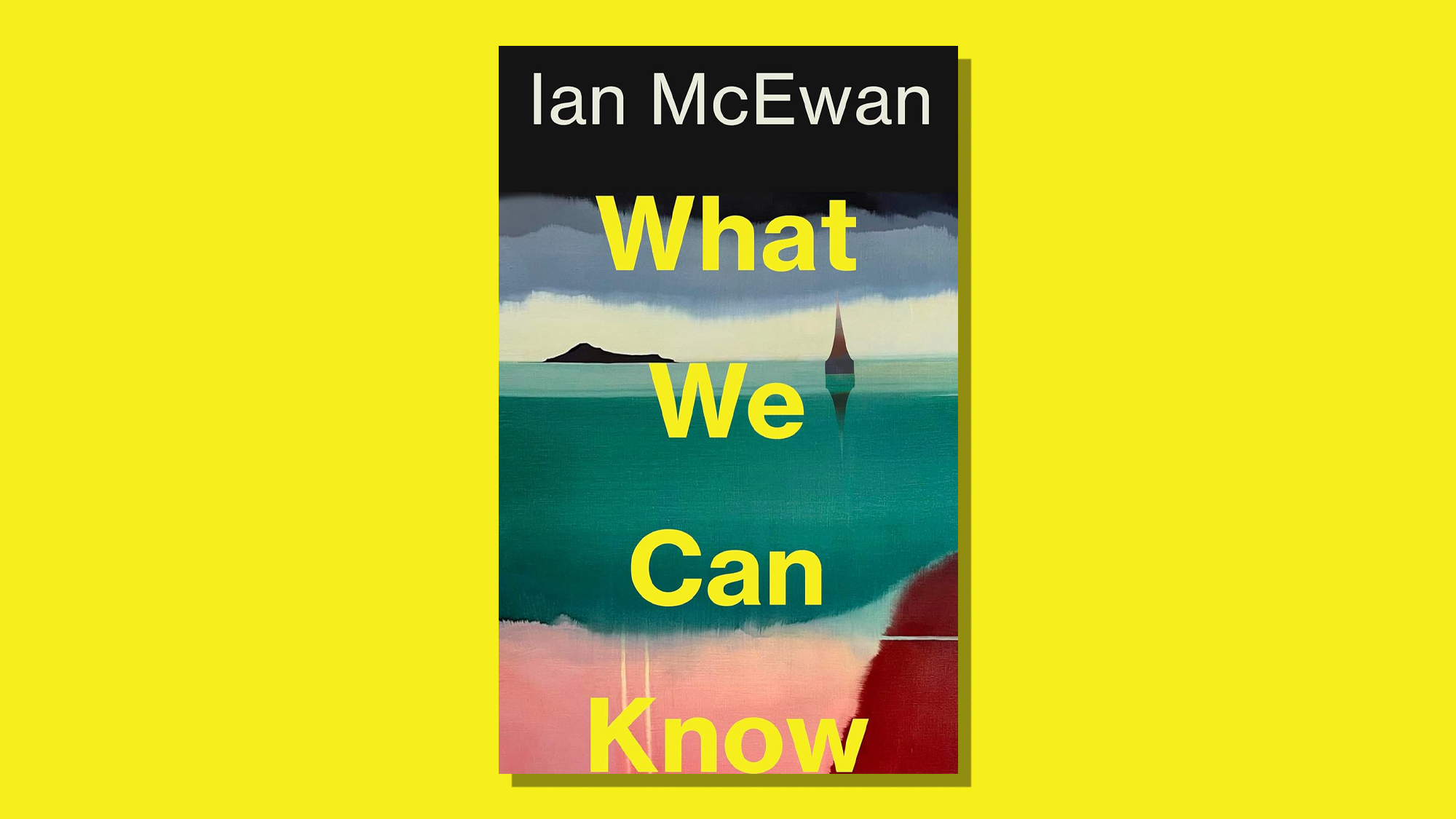What We Can Know: Ian McEwan’s ‘most entertaining and enjoyable novel for years’
The acclaimed writer’s ambitious new book sets out a ‘richly imagined’ vision of post-apocalyptic Britain

A free daily email with the biggest news stories of the day – and the best features from TheWeek.com
You are now subscribed
Your newsletter sign-up was successful
Ian McEwan may be 77, said John Self in The Times, but he doesn’t seem to be “slowing down”. His hugely ambitious latest novel, a “richly imagined” work of “curious charm”, brings together “poetry, dementia, social and personal memory, the progress of human development, murder and more”.
The year is 2119, and England is “now an archipelago, with low land under water”, having been ravaged by “catastrophic flooding” – partly produced by climate change, but also by a Russian nuclear attack in 2042. Tom Metcalfe, the narrator, teaches English at the University of the South Downs, specialising in the literature of the early 21st century – a period now called “the Derangement”. In particular, he is fascinated by a poet named Francis Blundy, whose most notorious work was a sonnet sequence written for his wife Vivien, which he recited at a dinner party in 2014. Those present attested to its genius – but afterwards the only copy disappeared. Metcalfe’s research into the events of that night – which mainly takes place in a Bodleian Library, now located in Snowdonia – leads him to believe he can recover the lost manuscript.
McEwan has fun with the details of his futuristic Britain, which “as post-apocalyptic dystopias go”, doesn’t seem too terrible, said James Walton in The Daily Telegraph. “Give or take the odd gang of bandits roaming the islands of the former Lake District, British society has readjusted rather than collapsed.” Elsewhere, things are more chaotic: Germany has been incorporated into Greater Russia; America is “a battleground for competing warlords”; and Nigeria is the “dominant power”. McEwan’s sentences remain “elegant and unhurried”, and it’s stirring to see him “pushing himself harder than ever”. Yet the novel ultimately suffers from information overload: it’s too “overstuffed – or if you prefer, a bit bonkers” – to be “wholly successful”.
The Week
Escape your echo chamber. Get the facts behind the news, plus analysis from multiple perspectives.

Sign up for The Week's Free Newsletters
From our morning news briefing to a weekly Good News Newsletter, get the best of The Week delivered directly to your inbox.
From our morning news briefing to a weekly Good News Newsletter, get the best of The Week delivered directly to your inbox.
“What We Can Know” indeed seems to “have everything”, said Anthony Cummins in The Observer. It starts out blending “doomy futurism” with “spiky campus satire”, before “finally taking shape as a gripping page-turner about marital duty and guilt”. Yet remarkably, it hangs together. “The movement between the domestic and the geopolitical hasn’t always been smoothly managed in McEwan’s work, but it’s carried off here with winning audacity.” It reads in some ways like a “McEwan’s greatest hits album”, said Jon Day in the Financial Times. And that’s no bad thing. “Aware of its limitations and comfortable in its skin”, this is McEwan’s “most entertaining and enjoyable novel for years”.
Available at The Week Bookshop
A free daily email with the biggest news stories of the day – and the best features from TheWeek.com
-
 What are the best investments for beginners?
What are the best investments for beginners?The Explainer Stocks and ETFs and bonds, oh my
-
 What to know before filing your own taxes for the first time
What to know before filing your own taxes for the first timethe explainer Tackle this financial milestone with confidence
-
 The biggest box office flops of the 21st century
The biggest box office flops of the 21st centuryin depth Unnecessary remakes and turgid, expensive CGI-fests highlight this list of these most notorious box-office losers
-
 A thrilling foodie city in northern Japan
A thrilling foodie city in northern JapanThe Week Recommends The food scene here is ‘unspoilt’ and ‘fun’
-
 Tourangelle-style pork with prunes recipe
Tourangelle-style pork with prunes recipeThe Week Recommends This traditional, rustic dish is a French classic
-
 Samurai: a ‘blockbuster’ display of Japan’s legendary warriors
Samurai: a ‘blockbuster’ display of Japan’s legendary warriorsThe Week Recommends British Museum show offers a ‘scintillating journey’ through ‘a world of gore, power and artistic beauty’
-
 BMW iX3: a ‘revolution’ for the German car brand
BMW iX3: a ‘revolution’ for the German car brandThe Week Recommends The electric SUV promises a ‘great balance between ride comfort and driving fun’
-
 Arcadia: Tom Stoppard’s ‘masterpiece’ makes a ‘triumphant’ return
Arcadia: Tom Stoppard’s ‘masterpiece’ makes a ‘triumphant’ returnThe Week Recommends Carrie Cracknell’s revival at the Old Vic ‘grips like a thriller’
-
 My Father’s Shadow: a ‘magically nimble’ love letter to Lagos
My Father’s Shadow: a ‘magically nimble’ love letter to LagosThe Week Recommends Akinola Davies Jr’s touching and ‘tender’ tale of two brothers in 1990s Nigeria
-
 Send Help: Sam Raimi’s ‘compelling’ plane-crash survival thriller
Send Help: Sam Raimi’s ‘compelling’ plane-crash survival thrillerThe Week Recommends Rachel McAdams stars as an office worker who gets stranded on a desert island with her boss
-
 Book reviews: ‘Hated by All the Right People: Tucker Carlson and the Unraveling of the Conservative Mind’ and ‘Football’
Book reviews: ‘Hated by All the Right People: Tucker Carlson and the Unraveling of the Conservative Mind’ and ‘Football’Feature A right-wing pundit’s transformations and a closer look at one of America’s favorite sports